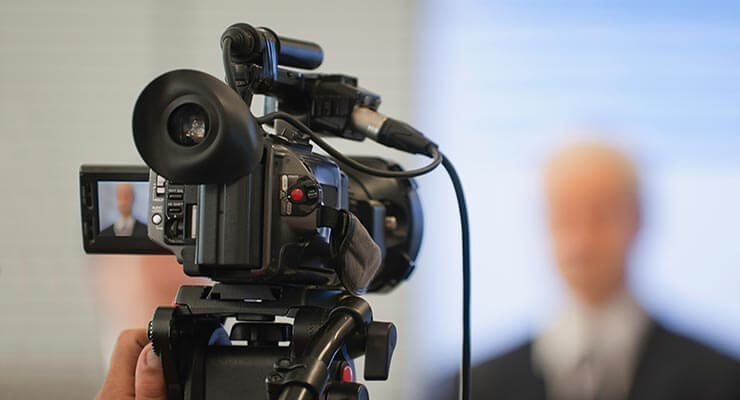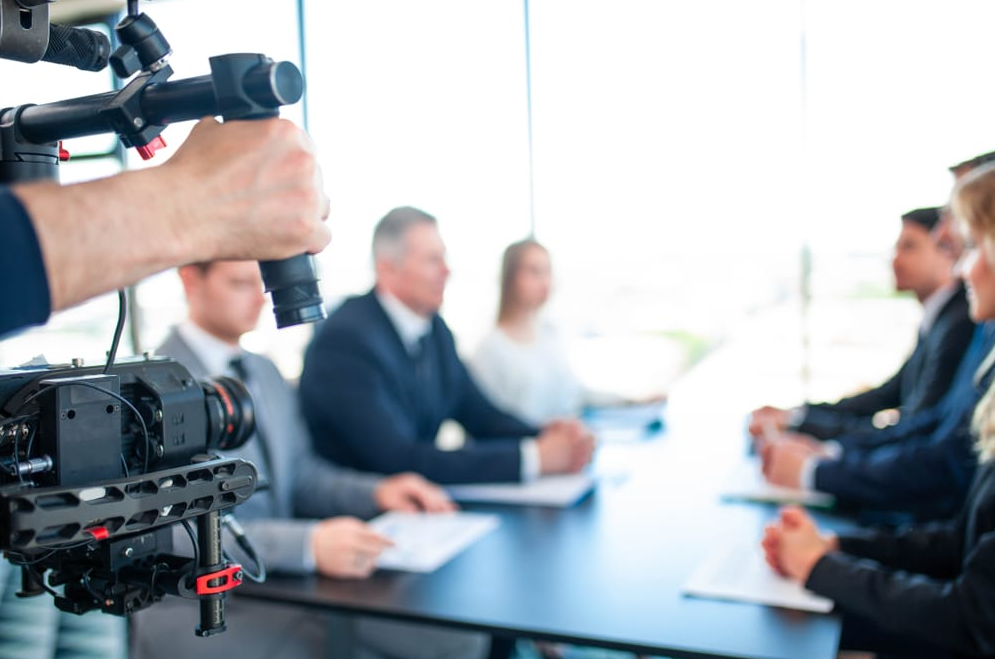Professional Legal Videography to Enhance Evidence Presentations.
The Duty of Legal Videography in Depositions and Tests
Legal videography has emerged as an important device in both depositions and trials, providing a diverse strategy to recording witness statements. By catching not just the spoken word however also the nuances of non-verbal interaction, this medium improves the integrity of testaments and preserves crucial evidence for future procedures (legal videography). As attorneys increasingly acknowledge its worth, it triggers a deeper exam of exactly how these visual documents can influence juror assumptions and trial end results. What ramifications might these developments hold for the future of lawful practice?

Relevance of Legal Videography
Lawful videography plays a critical function in the documentation and presentation of depositions and trials. This specialized field integrates technical skills with lawful understanding to produce a reputable record of proceedings that can substantially affect situation end results. The appearance of lawful videography boosts the understanding of witness testimony, allowing jurors and judges to observe not only the talked words yet likewise the demeanor, emotions, and body language of the witnesses.
Additionally, lawful videography offers an objective account of events, decreasing the potential for misconception that can accompany written records alone. This aesthetic documents works as a critical tool throughout test discussions, assisting in a clearer and more influential narrative for both plaintiffs and defendants. The capability to replay video sections throughout court proceedings allows legal groups to stress vital points, strengthening their arguments efficiently.
The importance of lawful videography prolongs past the court room; it additionally plays an essential function in protecting evidence for future recommendation, whether for charms or additional legal action. Its integration into the lawful process is vital for guaranteeing a fair and accurate depiction of the realities, eventually contributing to the search of justice.

Process of Legal Videography
While capturing the subtleties of depositions and tests, the procedure of lawful videography involves a number of critical actions that make sure top quality, exact recordings. At first, an expert legal videographer prepares by evaluating the case products and understanding the particular requirements of the deposition or trial. This prep work includes familiarizing themselves with the individuals and the context, which aids in catching significant information.
On the day of the recording, the videographer establishes the necessary equipment, which usually consists of high-definition cameras, microphones, and proper illumination. Making certain ideal angles and audio quality is essential, as it directly affects the efficiency of the recording. The videographer connects with lawyers and individuals to establish procedures, making certain that everybody recognizes the recording procedure.
During the deposition or test, the videographer thoroughly records the proceedings, paying attention to both verbal and non-verbal hints. This includes recording the disposition and responses of witnesses and attorneys. After the session wraps up, the videographer might edit the video for clearness and conformity with lawful requirements, generating a final product that accurately reflects the find proceedings for future referral and use in lawful contexts.
Benefits in Depositions
The consolidation of videography in depositions offers various benefits that improve the general process of collecting proof. One primary advantage is the capability to capture witness testimonies with aesthetic and acoustic integrity, supplying an extra accurate depiction of the witness's attitude, tone, and body movement. This multidimensional method enables attorneys and juries to evaluate trustworthiness better than conventional written transcripts alone.
Additionally, videographed depositions act as an effective device for maintaining testament. Should a witness ended up being not available for trial, their taped deposition can be played Going Here in court, ensuring that their evidence stays accessible and appropriate. This aspect substantially minimizes the danger of losing critical information that could affect situation end results.

Lastly, videography boosts the general professionalism and reliability of the deposition process, instilling self-confidence in clients pertaining to the thoroughness of their legal depiction (legal videography). By leveraging technology, lawyers can significantly boost the performance of depositions
Influence On Tests
In lots of tests, the assimilation of videography can considerably affect the discussion of proof and the jury's perception. Legal videography catches witness statements and crucial proof in a vibrant layout, enabling jurors to involve with the product on numerous degrees. This visual element boosts the storytelling facet of a trial, giving context and psychological vibration that traditional text-based evidence might lack.
Moreover, video recordings can work as powerful devices for impeachment throughout interrogation. When disparities emerge in between a witness's prior statements and their courtroom statement, video clip proof supplies an objective recommendation that can persuade jurors' point of views. This immediacy and clarity can reinforce the trustworthiness of an event's narrative while concurrently threatening opposing disagreements.

Future Trends in Legal Videography
As we look toward the future of legal videography, numerous arising patterns assure to reshape its function within the court. One considerable pattern is the assimilation of artificial knowledge (AI) in video analysis and modifying. AI can simplify the process of identifying crucial moments in videotaped depositions, permitting lawyers to quickly access pertinent material, therefore enhancing performance in instance preparation.
Additionally, the rise of online truth (VR) and increased reality (AR) innovations is anticipated to change just how jurors experience proof. legal videography. By submersing jurors in a substitute atmosphere, these technologies can give an extra extensive understanding of complicated scenarios, bring about even more enlightened deliberations
Additionally, the enhancing demand for remote depositions, sped up by the COVID-19 pandemic, will likely proceed. Lawful videographers will certainly require to adjust to brand-new software and systems to guarantee top quality recordings in virtual settings.
Lastly, the growing focus on information safety will certainly require stricter methods for storing and sharing video clip proof. As the legal landscape progresses, legal videographers must remain abreast of these patterns to preserve their relevance and effectiveness in the judicial process.
Final Thought
In recap, lawful videography serves an essential function in the judicial process, improving the honesty of depositions and trials. As technology proceeds to develop, lawful videography is positioned to additional transform its role within the lawful landscape.